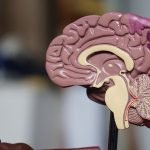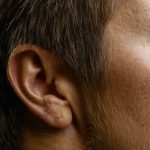Mysterious stroke at 38 changed how popular speaker connects with a crowd
As the author of 11 books about education, Allison Zmuda has long been a highly sought speaker about approaches to learning.
Yet after giving countless...
Major weight loss may reverse heart disease risks
In a new study researchers found major weight loss appears to reverse most of the cardiovascular risks linked with obesity.
The findings suggest that the...
Brain tumors: Do you know the symptoms?
A tumor in the brain isn’t like tumors in other parts of your body. It has limited room for growth because of the skull.
This...
COVID Vaccines can effectively prevent death caused by Delta
In a new study from the Universities of Edinburgh and Strathclyde, researchers found vaccination is over 90% effective at preventing deaths from the Delta...
Antioxidants may help prevent Alzheimer’s disease
In a new study from the Institut national de la recherche scientifique, researchers found that an oxidation-antioxidant imbalance in the blood is an early...
This common high blood pressure drug may help reduce gout risk
In a recent study published in the Journal of Hypertension, researchers found that antihypertensive medication amlodipine is linked to a lower risk for gout compared...
Testosterone levels could influence your diabetes risk
In a recent study published in Nature Medicine, researchers found that having genetically higher testosterone levels increases the risk of metabolic diseases such as...
Long COVID linked to more bacteria in your mouth
In a new study from UMass Chan Medical School, researchers found that patients with persistent long COVID symptoms have oral microbiomes with a much...
Hearing loss and the link to dementia
Hearing loss is a natural part of aging nobody likes to admit is happening. But happen it does – and ignoring it comes with...
These common foods may help lower diabetes risk
In two recent studies published in The BMJ, researchers found higher consumption of fruit, vegetables and whole-grain foods are associated with a lower risk...










